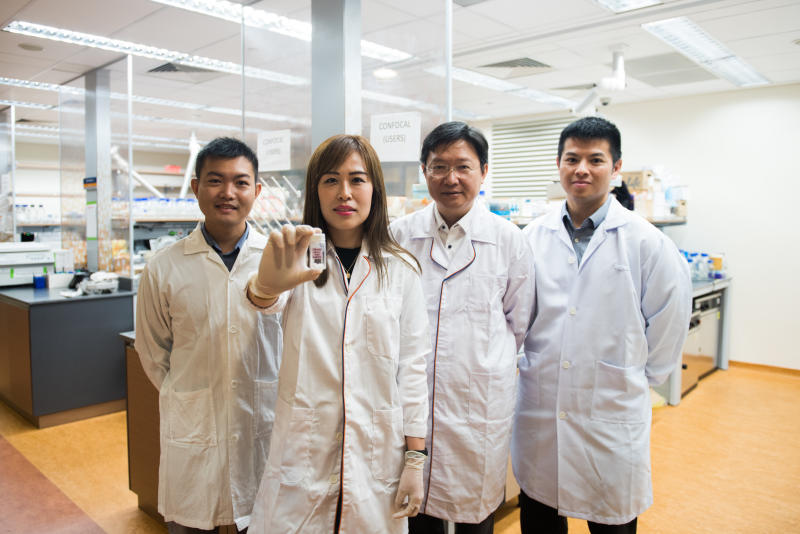Lab-grown liver tumours help Singapore scientists to develop anti-cancer drugs
Sign up now: Get ST's newsletters delivered to your inbox

(From left) Dr Toh Tan Boon, research fellow from the Cancer Science Institute of Singapore NUS, Dr Eliza Fong, Professor Hanry Yu from the Department of Physiology and principal investigator from the Cancer Science Institute of Singapore NUS, Dr Edward Kai-Hua Chow.
ST PHOTO: LEE JIA WEN
Follow topic:
SINGAPORE - A team of scientists has managed to grow tiny liver cancer tumours in a laboratory which they believe could hold the key to treating one of Singapore's deadliest diseases.
Anti-cancer drugs can be tested on them, allowing scientists to see how effective they are within a week or so.
"This could one day allow patients to choose the best treatment based on the drug testing results of their own liver cancer cells," added Professor Hanry Yu, who is group leader at the Institute of Bioengineering and Nanotechnology at the Agency for Science, Technology and Research (A*Star).
Currently, one of the main problems with treating liver cancer is that there are many variations of the disease, meaning that it can be very difficult to find an effective drug.
The disease is most common in Asia and Africa, and often caused by the hepatitis B and C viruses or fatty liver disease.
In Singapore, it ranks among the top five causes of cancer deaths, with around 2,500 recorded between 2010 and 2014.
The project to grow mini liver cancer tumours was a collaboration between the National University of Singapore's physiology and biomedical engineering departments, the Cancer Science Institute of Singapore, the Institute of Bioengineering and Nanotechnology, A*Star and the National Cancer Centre Singapore.
One of the team's biggest challenges was to find a material on which tumours would grow as naturally as they do inside the human body, and function the same way.
"When you grow cells outside the body, they may change - simply because (the environment) is not the body," said bioengineer Eliza Fong, who leads the team.
Her team found success by using a scaffold made out of a plant-based hydrogel, which resembles a very small dishwashing sponge.
Liver cancer cells grown on this scaffold stayed alive and reproduced. They also retained specific genetic changes that were seen in the original tumour cells taken from a patient, but are typically.not seen in healthy cells.
"There is a lot of evidence that within the same tumour, not every cancer cell is the same," added Dr Fong. These variations among liver cancer cells were also seen in the lab-grown cells.
The team is now working with hospitals to see how this technology can help patients.
It is also refining its methods and trying to build a more complex model of liver tumours.
"For example, tumours can have immune cells or tumour supporting cells," Dr Fong said. "The next step is to better mimic these properties of tumours."
Correction note: The article has been edited to reflect how the lab-grown liver tumour cells resemble the original cells taken from a patient.

